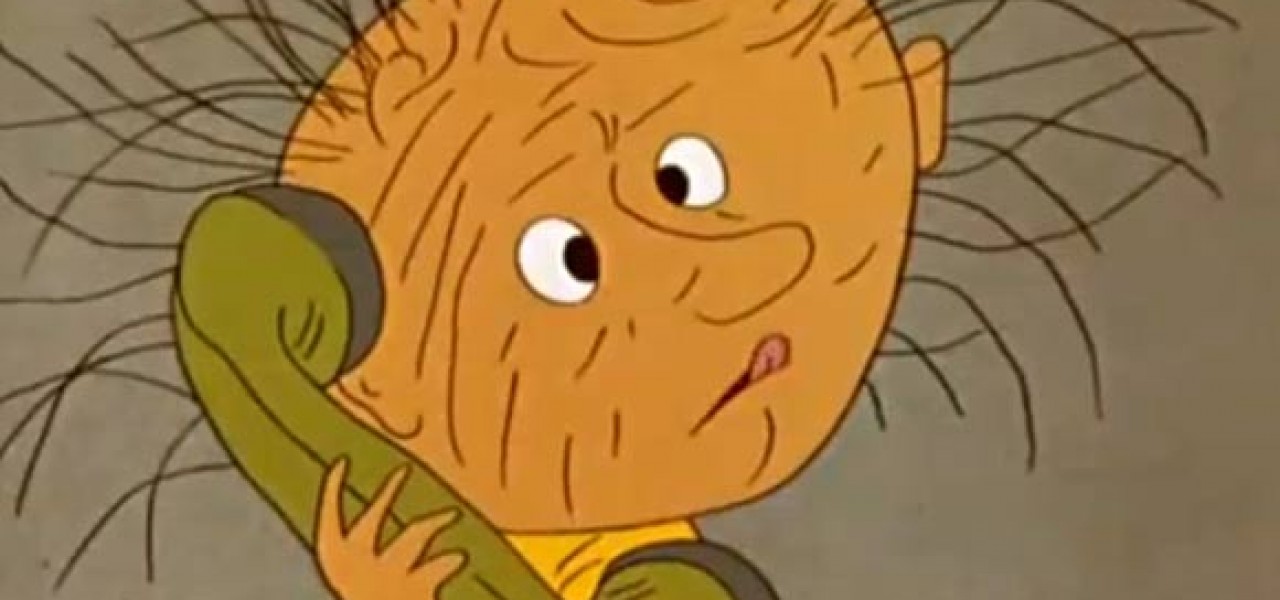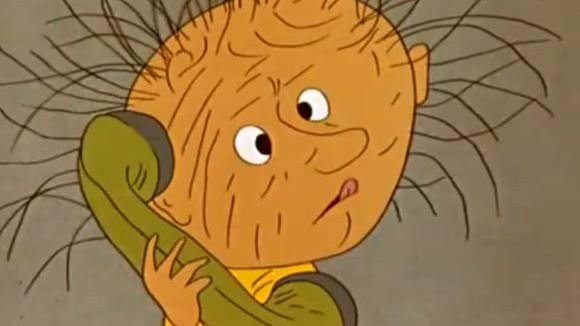

“Exercises in Preparation for an Independent Life” by Priit Pärn
The following writing about Exercises in Preparation for an Independent Life (1980) is by Marsh Murphy and appeared in Metro Cinema‘s The Animated Films of Priit Pärn (download the PDF here).
Priit Pärn’s third film, Exercises in Preparation for
an Independent Life (Harjutusi Iseseisvaks Eluks), opens on a fun-loving little boy, scratchily drawn. He’s a free spirit, who plays joyful games with reality; he turns himself into a bird, a storm cloud, the rain. He is a creature of joy, of pure imagination. His game is interrupted by a bureaucrat in a grey suit, whose loud ‘Ahem’ announces his presence and displeasure. The man sits at his desk, puts on his hat, goes through the rituals of the workday. He repeats his actions over and over, his repetition a mirror of the monolithic, bullying authority of a whole society. The boy responds with humor; his actions parody the man’s. When the man reads a newspaper, the boy reads a rainbow; when the man sits in a chair, the boy sits in a river. They duel, the man’s repetitive actions countered by the boy’s joyful innovations.The boy’s freedom is infectious, and the man’s reality starts to fall apart. His routine skips and jitters; his world and body melt and shatter and disappear. He gets tuned in, turned on, and becomes free; he follows the boy’s lead, and changes himself into a bird, a cloud, the rain. But his freedom is illusory; he’s repeating the boy’s behavior from the beginning of the film. Although his actions have the appearance of freedom, they’ve been learned by rote. His
independence is unreal.In a way, Exercises shares a theme with a few other Pärn films: the struggle to live independently within society. The man in Exercises is moderately successful at the task; this puts him at a midpoint in that continuum. In Trickster, the little magic bear is the dominant player; he hacks reality for his own amusement, and at the expense of the people around him. He leaves the world when they become angry, but then decides to come back as an entertainer; he’s found a role for himself within the world. The situation in Breakfast on the Grass is more bleak; the artists in Breakfast depend upon the machine of society; they struggle to find food, to retain loving relationships. They’re isolated pieces in a lonely game, and though they find moments of beauty (like the painting of Breakfast on the Grass), these moments are the exception. The greater part of their lives are grey and dark and full of struggle.
In Exercises, the man’s freedom may be an illusion, but it’s one that he believes. He has a semblance of independence. And it’s hard to say if that’s a win or a loss, just as it’s hard to
say if my reading of this piece has anything to do with Pärn’s intentions.Because for me, watching Pärn’s films is like talking to someone with dementia. Scenes or sentences make sense, and they flow okay from one to another. But a few minutes in, and you start to lose your handle on things. If you try just a little harder, if you concentrate just a little more, maybe you’ll get it, you’ll understand what’s going on. But there’s a fear there, too – if you get in deep enough to understand, you might not make it back out again. And while Pärn’s world is fascinating, it’s not someplace I want to live.

.png)